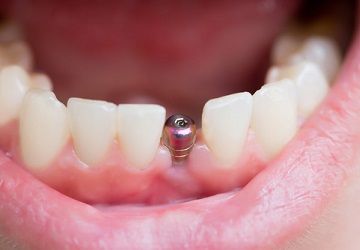Coatings with Antibacterial Properties Being Designed for Dental Implants
In an effort to increase the success of dental implants, scientists at the UPV/EHU-University of Basque Country are working to develop new dental implant coatings with antibacterial properties.

Dental implants fail for a variety of reasons. The most common tends to be infections in the oral cavity. In an effort to increase the success of dental implants, scientists at the UPV/EHU-University of Basque Country are working to develop new dental implant coatings with antibacterial properties.
One of the researchers on the project, Beatriz Palla, said “about 10 percent of implants have to be removed due to osseointegration problems or to the onset of infections.” This figure has spurred the search for implant surfaces capable of preventing bacterial colonization and adhesion in the area surrounding the implant. However, several key challenges stand in the way, including the difficulty of providing titanium implant surfaces with antibacterial properties and the significant resistance bacteria have to conventional antibiotic therapies.
In the process of developing new antibacterial coatings, the research group at the University found success with sol-gel synthesis. This method of developing a coating uses a precursor solution (sol) that, when left on its own for a certain period of time, turns into a gel. The gel is then used to coat titanium screw surfaces and is next subjected to a heat treatment to firmly adhere the gel to the screw.
In this case, the precursor solution was silica, which has already been shown to be osteoinductive in many studies. The researchers then added various antibacterial agents to the gel.
In total, three different types of coatings were developed for testing, each different based on their antibacterial properties. However, each coating had a mechanism for dealing with bacterial infections, ranging from bacterial prophylaxis to eliminating a colony once it was established on the coating. One of the coatings, for now a trade secret, was designed to be used in situ during dental procedures on infected screws so that there was no need to remove the implant from the patient’s mouth.
Since initial results from tests with the three types of coatings were viewed as a success, Palla believes that “it is possible to confirm that coatings with an antibacterial capability and which do not affect the proper integration of the implant into the jawbone have been developed. Apart from all the trials that remain to be carried out, it would also be advisable to pursue the research a little further to optimize the results more."